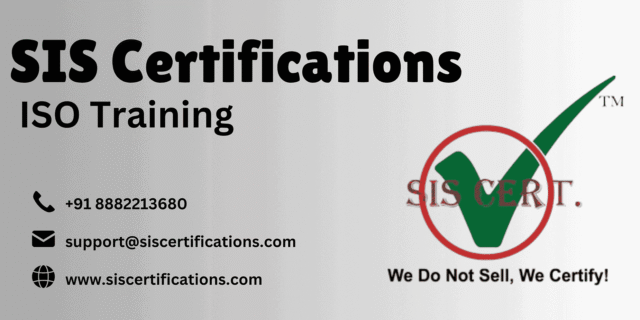Overview of ISO 22000 Certification
ISO 22000 Certification is an international standard established by the International Organization for Standardization (ISO) to ensure food safety across the entire supply chain. Introduced in 2005 and updated in 2018, ISO 22000 integrates essential food safety principles, including Hazard Analysis and Critical Control Points (HACCP), prerequisite programs (PRPs), and effective communication, into a robust FSMS. It is designed for organizations of all sizes, including producers, processors, packagers, distributors, and retailers, ensuring a unified approach to food safety.
The primary purpose of ISO 22000 Certification is to identify and control food safety hazards—biological, chemical, or physical—at every stage of production and distribution. By achieving this certification, businesses showcase their ability to deliver safe food, comply with regulations, and meet consumer expectations. The standard’s compatibility with other ISO frameworks, such as ISO 9001 for quality management, enables seamless integration, enhancing operational efficiency. With ISO 22000 Certification, organizations gain a competitive edge, build consumer trust, and access global markets by adhering to international benchmarks.
ISO 22000 Certification Cost
The cost of obtaining ISO 22000 Certification varies based on factors like the organization’s size, operational complexity, and the certification body selected. Here’s a breakdown of typical expenses:
- Gap Analysis: An initial assessment to identify gaps between current practices and ISO 22000 requirements typically costs $1,000 to $6,000, depending on the business’s scale.
- Training: Educating employees and internal auditors on ISO 22000 standards is crucial. Training programs, whether online or in-person, range from $500 to $3,800, based on participant numbers and delivery format.
- FSMS Implementation: Developing an FSMS, including documentation, risk assessments, and facility upgrades, can cost $2,800 to $13,000 for small to medium-sized businesses, with larger enterprises facing higher costs.
- Certification Audits: The process includes a Stage 1 audit (document review) and a Stage 2 audit (on-site evaluation), with combined costs ranging from $2,000 to $10,500, depending on audit scope and duration.
- Ongoing Maintenance: After certification, businesses must conduct internal audits and undergo surveillance audits (annually or biennially), costing $1,000 to $6,500 per year. Recertification, required every three years, involves additional audit fees.
While the initial investment may seem substantial, ISO 22000 Certification offers long-term benefits, such as reduced food safety risks, improved efficiency, and enhanced marketability, making it a valuable strategic move.
ISO 22000 Certifications
Although sometimes referred to as “ISO 22000 Certifications,” the term typically denotes the single ISO 22000 Certification standard focused on food safety management. However, businesses may pursue complementary certifications to enhance their systems. These include:
- FSSC 22000: A GFSI-recognized scheme that builds on ISO 22000 with additional sector-specific PRPs, ideal for businesses targeting global markets.
- ISO 9001 Integration: Combining ISO 22000 with ISO 9001 creates a unified system for managing food safety and quality, streamlining operations.
- Standalone HACCP: While HACCP is embedded in ISO 22000, some organizations opt for standalone HACCP certification to meet specific regulatory or client requirements.
Each certification serves distinct needs, but ISO 22000 Certification remains the foundation for food safety, offering a versatile framework for businesses across the food industry.
ISO 22000 Certification Requirements
Achieving ISO 22000 Certification requirements organizations to meet specific criteria to ensure a robust FSMS. Key requirements include:
- FSMS Development: Establish and document a food safety management system aligned with ISO 22000 standards.
- Leadership Commitment: Top management must set food safety policies, allocate resources, and ensure accountability throughout the organization.
- Hazard Analysis: Conduct a thorough analysis to identify and control biological, chemical, and physical hazards using HACCP principles.
- Prerequisite Programs (PRPs): Implement foundational practices, such as sanitation, pest control, and employee hygiene, to maintain a safe production environment.
- Communication: Establish effective internal and external communication channels to share food safety information with employees, suppliers, and regulators.
- Documentation: Maintain detailed records, including policies, procedures, and monitoring data, to demonstrate compliance.
- Continuous Improvement: Regularly monitor the FSMS, conduct internal audits, and implement corrective actions to address nonconformities.
Meeting these requirements involves a coordinated effort, often requiring expert guidance to ensure full compliance with the standard.
ISO 22000 Certification Process
The ISO 22000 Certification process is a structured journey to verify that an organization’s FSMS meets international standards. The key steps are:
- Gap Analysis: Assess current practices against ISO 22000 requirements to identify gaps and develop an implementation plan.
- FSMS Implementation: Document and implement the FSMS, including policies, HACCP plans, PRPs, and procedures. This may involve process upgrades and staff training.
- Internal Audit: Conduct an internal audit to verify the FSMS’s effectiveness and compliance with the standard.
- Management Review: Evaluate the FSMS’s performance to ensure alignment with organizational goals and address any issues.
- Stage 1 Audit: The certification body reviews documentation to confirm readiness for certification.
- Stage 2 Audit: An on-site audit assesses the FSMS’s implementation, including processes, records, and employee practices.
- Certification Issuance: Upon successful audits, the certification body issues the ISO 22000 Certification, valid for three years.
- Surveillance Audits: Regular audits (annually or biennially) ensure ongoing compliance.
- Recertification: A recertification audit is conducted every three years to renew the certification.
The process typically takes 6 to 12 months, depending on the organization’s size and readiness.
ISO 22000 Standard
The ISO 22000 Standard provides a comprehensive framework for managing food safety risks across the supply chain. Its core components include:
- Interactive Communication: Ensures seamless information sharing within the organization and with external stakeholders.
- System Management: Integrates food safety into the organization’s broader management system, aligning with strategic objectives.
- Prerequisite Programs (PRPs): Establishes foundational practices to maintain a hygienic production environment.
- HACCP Principles: Identifies and controls hazards at critical points in the production process.
The latest version, ISO 22000:2018, emphasizes risk-based thinking and aligns with other ISO standards for easier integration. Its flexibility makes it applicable to diverse food businesses, ensuring a consistent global approach to food safety.
FAQs
1. What is ISO 22000 Certification?
ISO 22000 Certification verifies that an organization has implemented an effective FSMS to ensure food safety across the supply chain.
2. Is ISO 22000 Certification mandatory?
No, it is voluntary, but many regulators and customers require it to ensure compliance and safety.
3. How long does ISO 22000 Certification last?
The certification is valid for three years, with surveillance audits and a recertification audit required to maintain it.
4. Can small businesses achieve ISO 22000 Certification?
Yes, the standard is designed for organizations of all sizes, from small farms to large manufacturers.
5. What are the benefits of ISO 22000 Certification?
It enhances food safety, ensures regulatory compliance, builds consumer trust, and expands market opportunities.
Conclusion
ISO 22000 Certification is a cornerstone for food businesses aiming to prioritize safety, quality, and compliance. By implementing a robust FSMS, organizations can mitigate risks, streamline operations, and enhance their reputation in a competitive market. While the certification process requires time and investment, the benefits—ranging from reduced safety incidents to increased consumer confidence—make it a strategic choice for long-term success. Whether you’re a small producer or a global supplier, ISO 22000 Certification positions your business as a trusted leader in food safety, driving growth and credibility.







